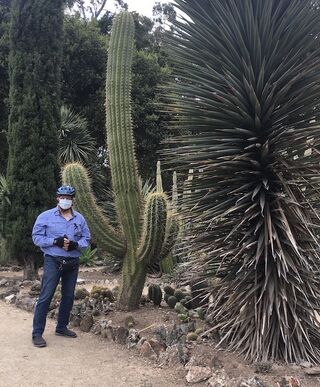
No place on earth is so remote that it wasn’t touched by COVID-19 during the year 2020. Older folks were most at risk by virtue of age and pre-existing medical conditions. But everyone felt the hand of the virus on their shoulders either in the form of worry, isolation, financial insecurity, or denial. Nothing has changed as 2021 rolls along.
My two-year-old granddaughter stopped in her tracks the other day when she saw another toddler on the street. She had not seen another young child since she was a year old and didn’t know what to think of the little person. My six-year-old grandson has forgotten what it’s like to play with peers. On and on—we all have a poignant story and we’re not out of the woods yet. Much has been written about this extraordinary year skewed by COVID worries, treatments, refutations, vaccinations, and preventative strategies but this story focuses on an interesting and maybe unintended consequence.
Being a member of the generation designated as “most at risk” I’ve been acutely aware of the potential to be harmed by the virus and yet the past year has brought a sense of calmness over me. Daily, I thank my lucky stars that I am still healthy, which means COVID free, and grateful for all good fortune—the sun coming up, the bare trees of winter as they sway in wind and rain, the warmth of my bed when I’m tucked in at night, the fact that I have enough to eat, which I know is not true for all. I don’t take anything for granted and count all my blessings daily.
I find myself reading more—a habit I’ve always wished would take hold. I contemplate my mortality in ways that younger people don’t and shouldn’t know how to do. Each day that I wake, and I’m still not in the clutches of the dreaded virus, I see as a bonus. I reflect on what’s good and positive in my life and not so much on the unfinished business of daily living.
At the age of 80, I’m not afraid of the future or of the potential devastation that getting sick can bring. Old-timers have a broad perspective and the wisdom that comes with a lifetime of problem-solving and decades of adaptations to life as it is. The passage of great swaths of time helps us become more adaptable to what actually is, rather than on what we’d prefer life to be. Maintaining our health, to make the rest of life possible, takes on new meaning and more importance.
Whereas younger folks have all the distractions that characterize their life stage, older folks can attend more to their own well-being. While youngsters are struggling with distance schooling and limited physical outlets, young and middle-aged adults struggle with maintaining a job, a livelihood, a household, enough food to eat, and the bare bones of existence. Those of us of a certain age can reflect on what’s important right now and in an indeterminate future. And in fact, we are doing just that in greater numbers.
A recent Wall Street Journal business article caught my eye. It targeted the market share that consumer goods producers usually ignore but were now hoping to entice—elders. “The pandemic has disproportionally harmed older people, which executives say has highlighted the importance of staying healthy later in life.” But why the new interest in this age cohort? The same article revealed that “the number of over-65s surpassed those under five globally for the first time in 2018… and the trend has accelerated since.” Apparently, mobilized by COVID concerns and the space it demands, the boomer-and-beyond generation is turning its attention to aging well. Therefore, healthy aging has spawned new consumer product development especially related to nutrition. This is a win-win for business and for older consumers.
Still, there’s more to healthy aging than nutrition and if we’re now paying more attention I’d like to suggest a few other ways to explore life fitness. While there’s really nowhere to go, walking, hiking, and biking for the ambulatory among us have definitely increased. Trails that I had never walked prior to COVID are dotted with grey heads and walking sticks, even in the winter months. Happily, most folks dutifully don their masks.
My book club via zoom has been immensely satisfying. My friend’s online bridge game keeps her sharp. As a cello player, I have a daily practice to provide continuity in a life that currently seems disjointed. I’ve even found an online music theory class where 10 of us oldsters and our teacher study the structure of music as if the world were sane. My current foray is learning to play chess. Why not? Yes, it’s harder when you’re old but it’s now or never. I won’t be getting younger. I have the time and the interest, and it’s good for the older brain.
Playing cello and chess are actually optimal ways to stimulate cognitive functioning and optimally fuel the brain. It turns out that newness or novelty, along with complexity and problem-solving are the most robust tonics for the aging brain. But which activities can provide the most benefit? Take up any art form—painting, playing the guitar. Learn a complex game—bridge, chess. Study a foreign language. Build something in your garage where it’s safe or try baking if you’ve never done it. All good.
Above all, stay healthy and take this unreasonably long stretch of COVID-induced quarantine time to do something good for you and to facilitate that you age well.




